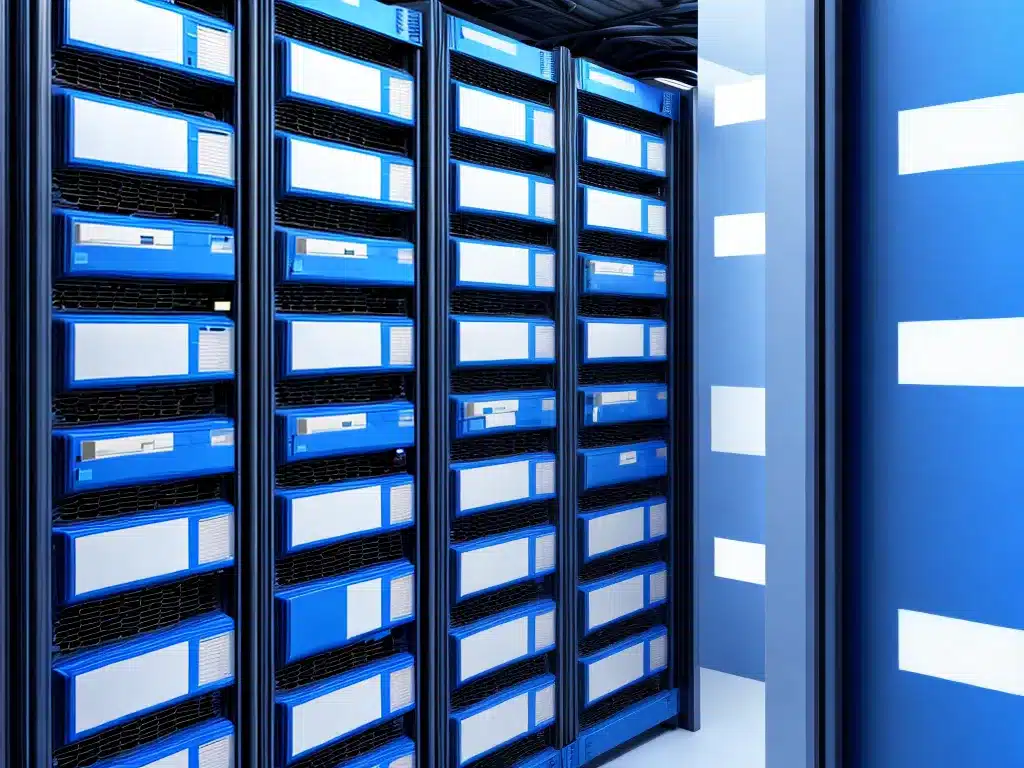
Who Needs Offsite Backup?
Offsite backup provides an extra layer of protection for your data by storing a copy of it in a separate physical location from your primary data storage. It helps safeguard your data against catastrophic disasters like fires, floods, and ransomware attacks that can damage onsite storage.
I recommend offsite backup for:
-
Small businesses: Loss of critical data can be devastating for a small business. Offsite backup provides an affordable way to protect business data from disasters.
-
Individuals: People with irreplaceable personal data like family photos and videos should consider offsite backup. It protects memories that cannot be replaced if a local drive fails.
-
Any organization with critical data: Companies, schools, hospitals etc. that cannot afford to lose data should implement offsite backup best practices. The cost is minor compared to the impact of data loss.
Essentially, any individual or organization that values their data and wants a robust recovery option should implement offsite backup. The risks of relying solely on onsite backups are too great.
Offsite Backup Options
There are several approaches to offsite data backup:
Cloud Backup
-
Overview: Your data is backed up to a remote cloud server over the internet. Popular services include Backblaze, IDrive, and Acronis.
-
Benefits
- No hardware to maintain – the cloud provider manages everything.
- Access data from anywhere with an internet connection.
- Scalable to backup large amounts of data.
-
Some services offer useful features like file versioning and ransomware protection.
-
Drawbacks
- Initial backup can be slow over the internet.
- Recurring fees make it a more expensive option long term.
- You must rely on the cloud provider’s security measures.
Physical Offsite Storage
-
Overview: You periodically create backup copies on drives or tapes and store them in a secure offsite location.
-
Benefits
- You retain full control over the backup process and media.
- One-time costs instead of recurring fees to a cloud provider.
-
Faster restores by physically transporting media back to your location.
-
Drawbacks
- Manual effort required to rotate and transport backup media.
- Physical media can degrade over time if not properly maintained.
- Offsite location may be vulnerable to disasters that hit a wide area.
Hybrid Model
-
Overview: Combine cloud backup for frequent backups with offsite physical media for periodic archival backups.
-
Benefits
- Get the immediacy of cloud with the control of physical media.
- Only send newer changed data to the cloud, reducing bandwidth usage.
-
Physical media creates an air gap that protects against malware.
-
Drawbacks
- Increased complexity of managing both cloud and physical offsite backups.
- Still incurs recurring fees for the cloud storage component.
Key Considerations
Here are some key criteria to evaluate when choosing an offsite backup solution:
-
Security: Look at encryption options to protect backed up data. Physical offsite storage gives you direct control over security.
-
Reliability: Choose established, reputable services and hardware with redundancy to limit downtime.
-
Restore testing: Regularly perform test restores to verify your backup is working properly.
-
Cost: Factor in upfront and ongoing costs. Cloud services are pricier long term but more convenient.
-
Bandwidth: Initial seeding backups to the cloud may require planning for large uploads.
-
Ease of use: Cloud backup simplifies offsite storage but gives up some customization.
-
Data retention: Determine policies for retaining archive data and file versions.
Conclusion
Offsite backup provides valuable protection against site disasters by keeping a copy of your data in a different physical location. Any individual or organization with critical or sentimental data should strongly consider an automated offsite backup strategy suited to their needs, whether cloud-based or using physical media. The peace of mind is worth the modest investment. With a sound offsite backup plan in place, I can rest easy knowing my data is safeguarded from worst-case scenarios.












